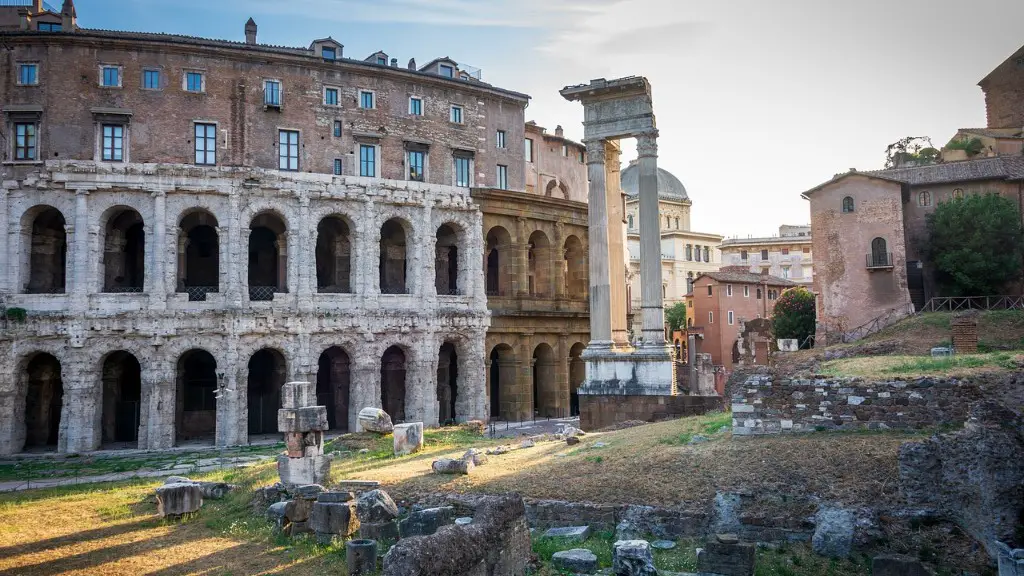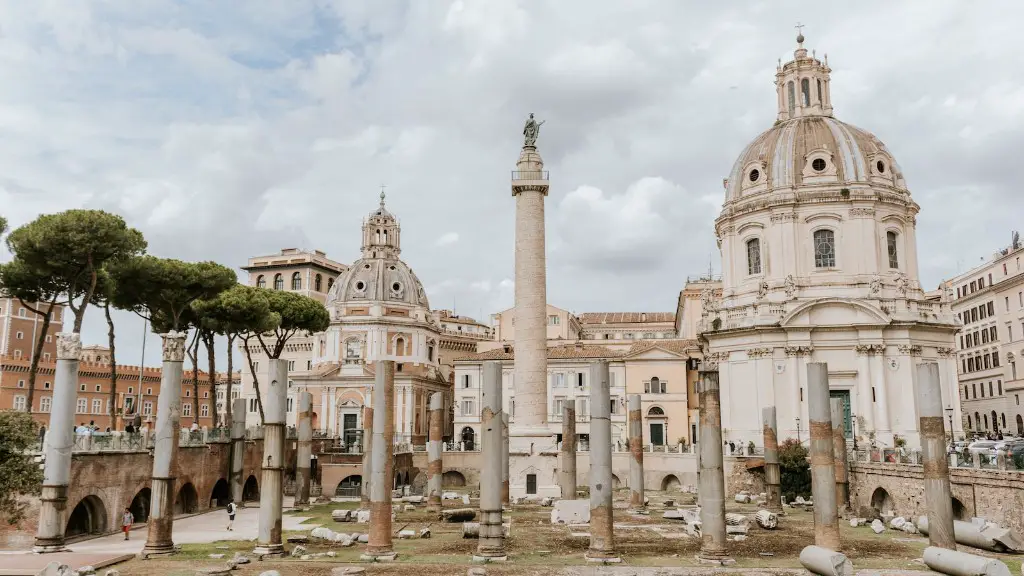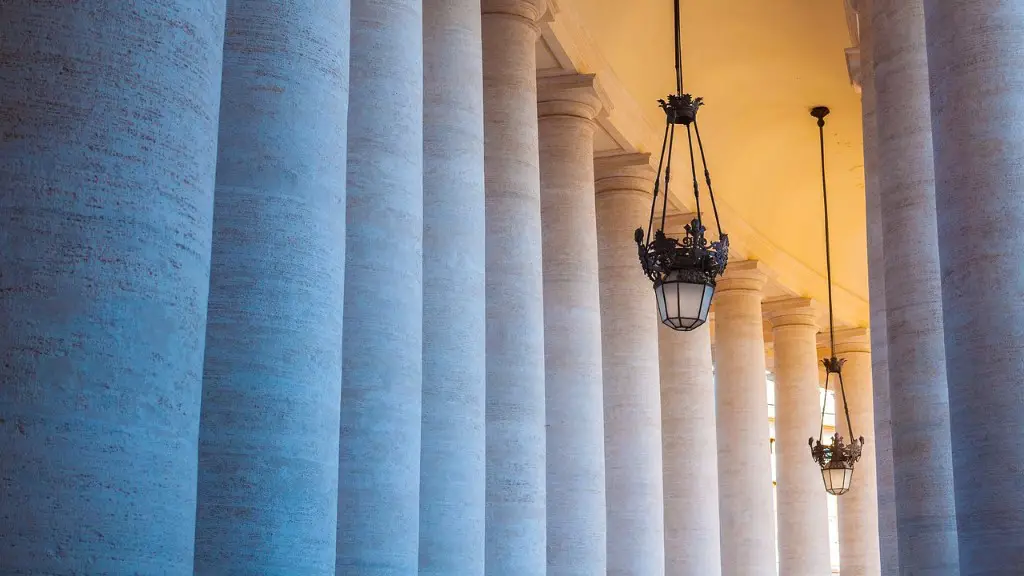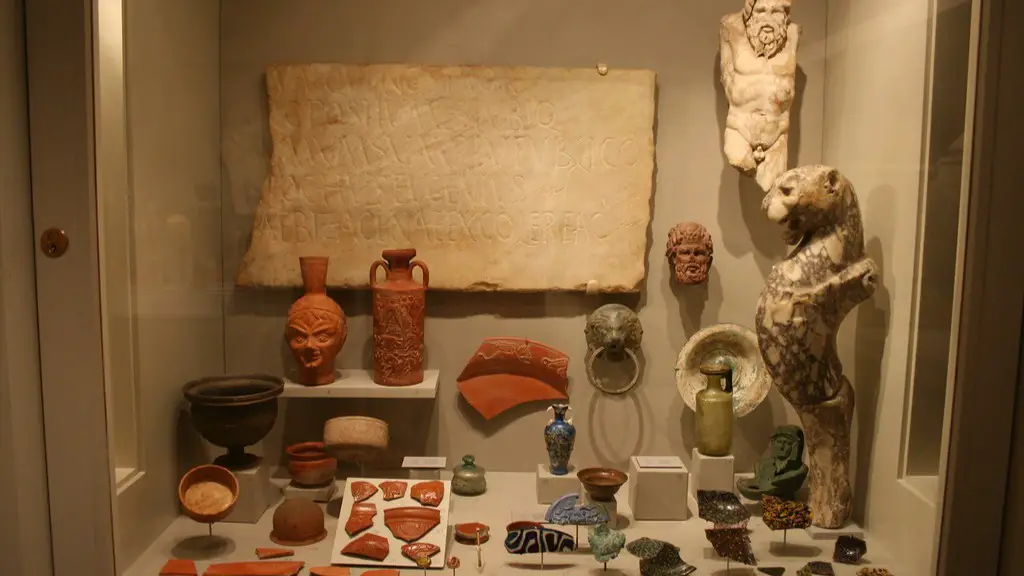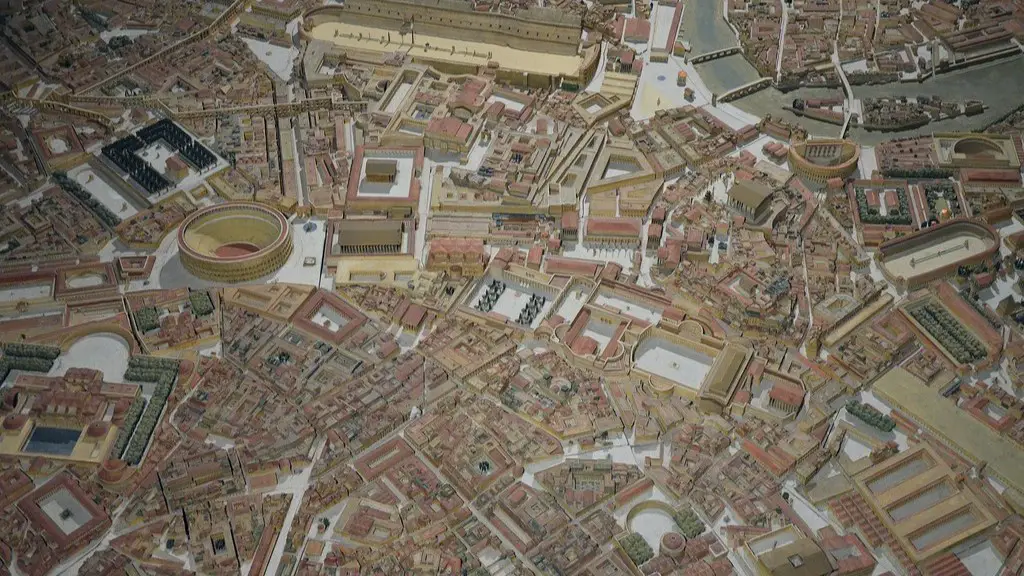Merchants in ancient Rome were responsible for the procurement and sale of goods within the city. They typically set up shop in the forum, which was the center of economic activity in Rome. Many merchants were also artisans, and produced goods that they sold in their own shops. Some of the more successful merchants became very wealthy and influential within Roman society.
In ancient Rome, merchants were a class of people who bought and sold goods. They were different from artisans, who made goods, and from farmers, who produced food. Merchants could be either rich or poor. Some owned their own businesses, while others worked for someone else.
What did ancient Roman merchants do?
The Romans were a major trading force in the ancient world, importing a wide variety of goods from all over their empire. Beef, corn, glassware, iron, lead, leather, marble, olive oil, perfumes, purple dye, silk, silver, spices, timber, tin and wine were all popular items that were traded between the Romans and their various trading partners. The main trading partners for the Romans were in Spain, France, the Middle East and North Africa.
Merchandise and movement of goods has been a key part of human history and trade. Olive oil, spices, pottery, glassware and cloth are some of the goods that have been traded between countries. People from different lands have travelled and traded with each other, which has helped to spread culture and knowledge.
What did Roman merchants trade
Some important trade items in the ancient world included metals and olive oil from Spain and Africa, grain from Egypt, Africa and the Crimea, spices and silks from the east and wine from France and Italy. These items were carried in large jug-like red clay amphoras on square-sailed merchant ships.
The Roman Empire was very successful in trade and commerce. By importing goods from other countries, they were able to raise their living standards and have more luxuries. The trade routes covered the Roman Empire, along with sea routes covering the Mediterranean and Black Seas. There were also many different land routes which used the roads that the Romans had built.
What role did the merchants have?
Merchants were those who bought and sold goods, while landowners who sold their own produce were not classed as merchants. This was because merchants were seen as being more involved in the market, and because they typically had more money.
It is clear that merchants in the past had dual functions: they were involved in managing economic activities of the state while at the same time engaging in trade for their own households. This is an interesting piece of information that helps us to understand the role of merchants in society.
What items did merchants trade?
The silk road was a network of trade routes that connected the East and the West. merchants would travel along the silk road to trade goods such as silk, spices, tea, ivory, cotton, wool, precious metals, and ideas. the silk road was an important part of cultural exchange between the East and the West.
The Phoenicians were an ancient people who lived in what is now Lebanon, Israel, Syria, and Cyprus. They were known for their seafaring skills and their trade networks. The Phoenicians carried out the earliest known market-based private trade and arbitrage. They imported and sold tin and textiles to the local population, in exchange for silver, gold, and other goods, often at great profit.
What did Roman merchants eat
The ancient Greeks had a varied diet that included meat, fish, vegetables, eggs, cheese, grains, and legumes. Meat was obtained from animals like dormice, hare, snails, and boar. Smaller birds like thrushes were also eaten, as well as chickens and pheasants. This diet allowed the ancient Greeks to obtain all the nutrients they needed to maintain their health.
The Roman Empire was one of the largest empires in the ancient world and its main trading partners were Spain, France, the Middle East, and North Africa. The empire was largely agricultural, so many of its exports were food or products made from crops. The Romans traded extensively with their neighbours and developed a complex system of roads and waterways to transport goods.
How did traders carry goods to Rome?
South India was famous for its gold, spices, and precious stones. Pepper was particularly valued in the Roman Empire, so much so that it was known as black gold. Traders carried many of these goods to Rome in ships, across the sea, and by land in caravans.
The Roman Empire was a major trade partner for many countries in Europe and beyond. Spain, France, the Middle East and North Africa were all major trading partners for the Romans. They imported a variety of goods like beef, corn, glass, iron, lead, leather, marble, olive oil, perfumes, timber, tin and wine. Britain was a major supplier of lead, woollen products and tin. In return, the Romans imported wine, olive oil, pottery and papyrus from Britain.
Why did merchants become wealthy
Merchants in the Middle Ages were able to become wealthy and powerful by trading a variety of goods from faraway lands. They dominated the town’s business life and often joined town councils. This allowed them to have a great deal of influence over the town’s affairs.
Merchants were the middlemen of the medieval world, buying and selling goods from all over Europe and beyond. They were an essential part of the economy, as they facilitated the exchange of valuable resources and goods. Salt, iron, and textiles were some of the most commonly traded commodities, but merchants also dealt in rarer items like silk and spices, which were sourced from trade routes in China and the Middle East. Over time, craftsmen emerged as a key part of the medieval economy, producing everything from cloth and shoes to glass and stone for buildings.
Did Rome have merchants?
It is interesting to note that merchants in the Later Roman Empire considered both the projection and the reception of reputation in order to determine how these social norms constrained merchant actions. It seems that by fostering trust and reducing market volatility, these constraints actually generated economic opportunities for merchants. This is an interesting perspective and one that could be further explored in future research.
The merchant class was traditionally discriminated against for not contributing to essential duties such as agriculture or manufacturing. Their pursuit of gain was considered against the laws of God, because they were not producers of real goods, but rather resellers or usurers.
Conclusion
The merchants in ancient Rome were responsible for the distribution of goods and services throughout the city. They would set up stalls in the marketplace and sell their wares to the people who came to the market. Merchants were also responsible for transporting goods from one place to another. They would use their carts and horses to transport goods from the city to the countryside and from one town to another.
The ancient Roman merchants were a key part of the Roman economy. They were engaged in trade, manufacturing, and banking. Their activities helped to fund the Roman state and its military campaigns.
